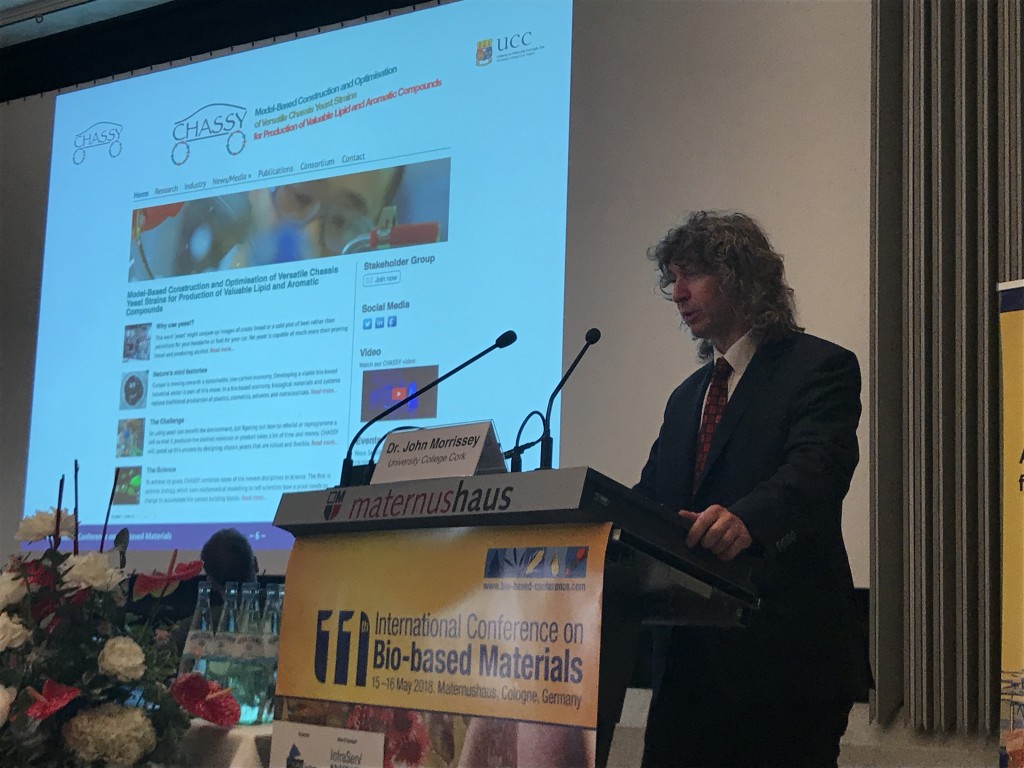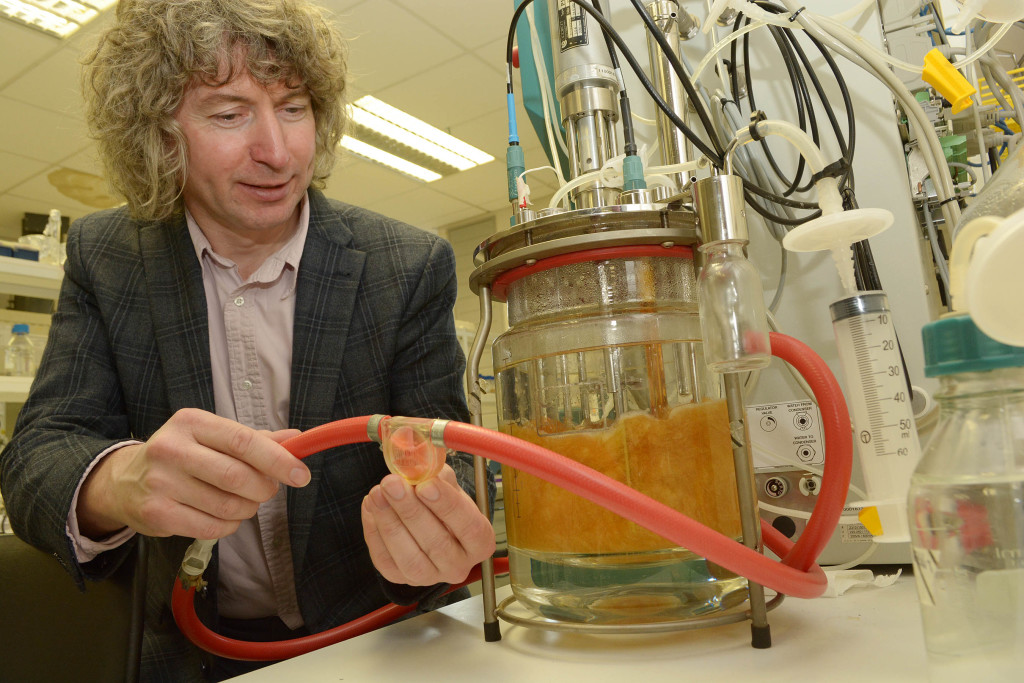Dr. John Morrissey, yeast biotechnologist from University of Cork Ireland and coordinator of the CHASSY project, talks about promising yeast research and its contributions in circular economy at International Conference on Bio-Based Materials in Cologne Germany on 15-16 of May.
In your recent presentation at the Bio-Based Materials Conference in Cologne, you gave a brief historical overview of biotechnology and yeast. We often hear the terms ‘bio-based’ and ‘circular economy’ linked to sustainability. Where does yeast biotechnology fit into this? Are these products truly sustainable?

Well, in the last century, petroleum became the source of many of the products that define modern times – fuel, plastic, clothing, and many chemicals and compounds in our foods, cosmetics and medicines. […] Researchers in yeast biotechnology have focused quite a lot on these ingredients and products that are currently made from petroleum. These ‘bio-based’ products, such as bio-based plastics allow us to reduce the amount of oil that we extract and the amount of CO2 (carbon dioxide) that we release into the atmosphere. In addition, the production processes are often less polluting and since the raw materials are all living things, they are renewable. The circular economy goes a step further and tries to ensure that waste products loop back into the system rather than being dumped. An example of that is biofuels – the first generation of biofuels used food crops as the raw material. This moved us away from using petroleum as the source of our fuels, but it was not a sustainable solution. Recent developments allow yeast to digest waste plant material, which is much more sustainable. With redesigned or engineered yeasts, we can fit into a waste-free circular economy model. It is important to be aware that these sustainable solutions are only possible because of the large scientific advances in microbe engineering and biotechnology.
Similarly, some bio-based products, such as the first generation of bioplastics, are still not biodegradable, so they have not solved the problems of plastic waste building up and microplastic contamination of the environment. Now scientists are working on bioplastics that are also biodegradable, to reduce waste and to increase sustainability. This illustrates the complexity of the dual challenge – replacing petrochemical-based production and ensuring environmental sustainability.
In your talk at the Bio-Based Materials Conference in Cologne, you focused on a project that you are currently working on. Tell us about this.
My talk focused on a project called CHASSY. This project is a collaboration between academic researchers and industry. It is funded by the European Union under the Horizon 2020 Research and Innovation Framework. At the moment, there are perhaps 50 important industrial products that can, theoretically, be made using yeast. However, many of these are not commercially viable because of high costs or because the yeasts themselves do not thrive in industrial conditions. Our main goal in CHASSY is to redesign yeast to produce three target compounds that are of value to the cosmetic and health sectors. These compounds, which are mainly based on fatty acids, are currently sourced in unsustainable or commercially unviable ways. Alongside this, we will have a suite of yeasts that will be optimised for industrial processes. Other companies or researchers will be able to take these yeasts and easily modify them further to produce additional products. This will make it much cheaper and quicker for companies, and for SMEs in particular, to develop new bio-based products. The end products that we are focusing on include aromas and oleochemicals (oils including fatty acids, fatty alcohols and wax esters).
Being at the Bio-based Materials Conference was great because I met several interesting companies and industry groups who are bringing these bio-based products to market and using the technologies we are developing in the lab. […] At the start of my career, I don’t think that I realised how important this kind of research would become in ensuring a sustainable economy with safe, high-tech jobs for Europe.
Will biotechnology sector continue to grow?
Oh yes, I definitely think that it will. There is a huge amount of science behind each of these bio-based products, and now we are very reliant on funding from public sources like the European Union or from large companies. However, as the body of knowledge grows, and technologies like synthetic biology and bioinformatics become more established, it will become cheaper, easier, and more viable for more and more of these products to be developed and brought to market. […] There are also several engineering and other technologies that have been tried, tested, and now work very well on them.

Scientists often discover substances that occur in nature could be very beneficial in medicine or in cosmetics, for example. However, often these new discoveries do not lead to new products because the substance only occurs in tiny amounts in nature or in a plant that is difficult to access or to cultivate. In cases like this, we hope it will soon be possible to recreate the plant’s own process of making a substance in a yeast cell so that we can access the benefits of nature without causing any harm to natural systems. Another example is the deforestation caused by the demand for palm oil […] so high that more and more land is being taken up by palm oil plantations, with negative effects on the environment and on many communities. While there will probably always be a demand for some ‘tree grown’ palm oil, many of the products that we derive from the raw oil could soon be produced in yeast sustainably and without any harm to the environment. This production could take place in clean biorefineries, similar to brewing plants, anywhere in the world. When one thinks about these kinds of possibilities, it becomes clear that biotechnology will continue to grow into the future. It is very exciting to consider the positive impact of the research that we are doing in CHASSY and similar projects.
This interview was provided by nova-Institute.
About CHASSY project: for further info visit project’s website.
Contacts: UCC Ireland and nova-Institute.


